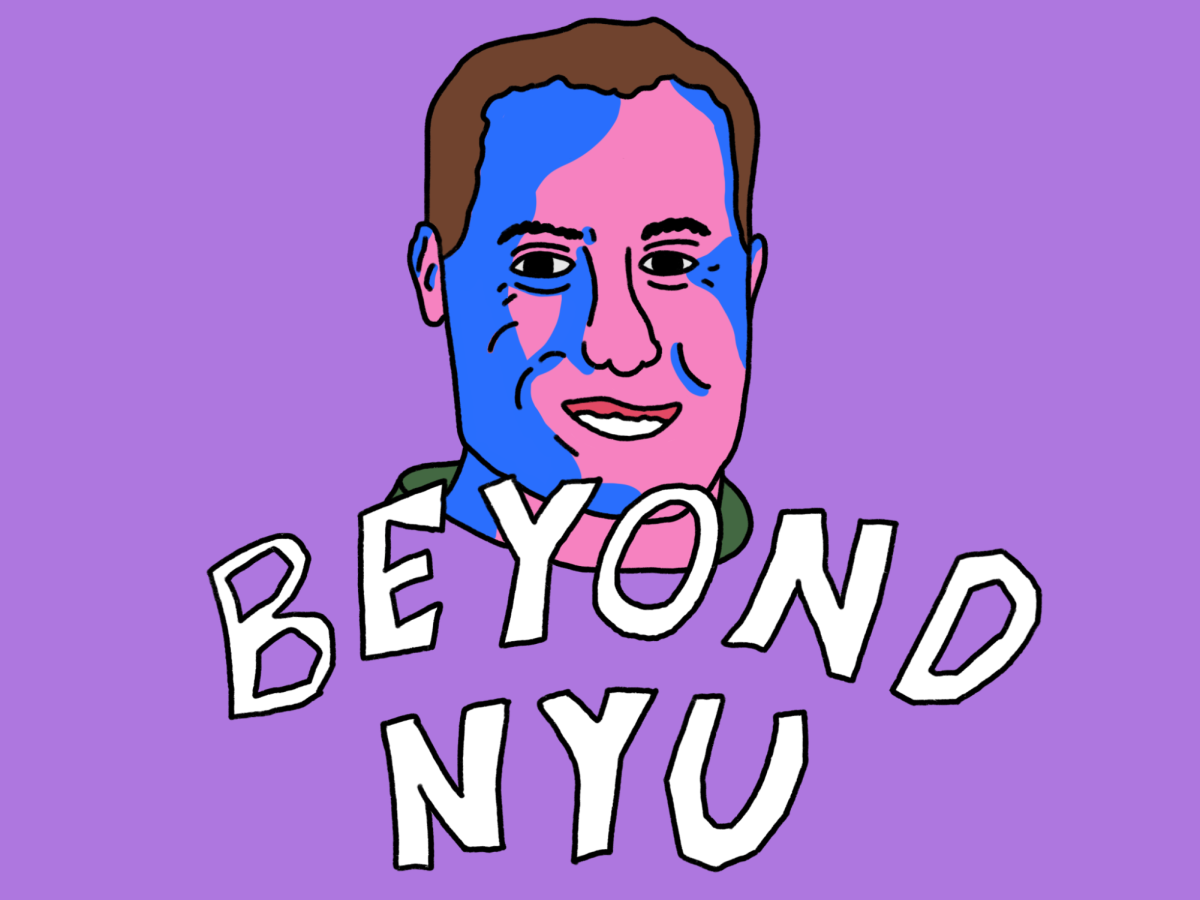When Steinhardt alum Jordan Plosky began playing the drums at just 7 years old, he did not know that he would one day pursue his passion onstage alongside pop stars including Miley Cyrus, Jason Derulo and Big Time Rush. With performances at Times Square and Madison Square Garden under his belt, he now runs Zoop — a business that helps emerging creatives find funding for their projects.
Plosky studied music business at the Steinhardt School of Culture, Education and Human Development, which he graduated from in 2001. He then interned as a house drummer at the MTV and VH1 studios, hoping to eventually secure a job there. However, Plosky decided to return to his home on Long Island and began recording music as a drummer at a nearby studio. The owner of the studio helped him connect with artist Ryan Cabrera, whom Plosky toured with for over a year.
In an interview with WSN, Plosky spoke about his experience drumming for various artists, the venues he played at and how his time as a performer helped him create his business.
This interview has been edited for length and clarity.
WSN: Could you tell me more about the venues you’ve played?
Plosky: As someone who grew up in New York, I got to play on stage at Madison Square Garden. I had my parents there and my grandma there, so it was a really special moment. Years later, I played a gig with an artist named Taio Cruz — he had a big song called “Dynamite.” We did Dick Clark’s New Year’s Rockin’ Eve in the middle of Times Square, and myself and my wife sort of had this VIP experience. A million people — legit a million people — were packed into Times Square for the ball drop. We had a dressing room, free food and drinks and a police escort to and from the stage. It was this cool, once-in-a-lifetime experience that was incredibly memorable.
Plosky originally wanted to pursue drumming full-time and therefore did not want to attend college. His parents, however, weren’t too fond of the idea. After doing research on the university’s music business program, he decided to apply early decision to NYU. Plosky said that he has fond memories as a first-year at Weinstein Hall.
WSN: What was it like working with such well-known artists?
Plosky: You kind of have to be a bit of a chameleon, and you have to get along in different ways. Each one of these artists is sort of like a boss, because it’s a job. You can’t forget that it’s a job. Most people are there because they’re passionate, love it, are easygoing and fun-loving since they’re on the way up. Though sometimes you’re playing with artists who are maybe not so on the way up and things get a little bit different. They’re professional, you’re professional and it’s work.
After drumming for around 10 years, Plosky decided to quit his music career to make time to start a family. He felt he could no longer pursue a life of traveling and networking and, instead, Plosky returned to an interest he had during the early ’90s — comic books. In 2016, Plosky launched his first start-up called ComicBlitz, a digital platform for reading comic books.
WSN: What sparked your desire to stop drumming and become an entrepreneur instead?
Plosky: I wasn’t able to burn the candle at both ends — I couldn’t have my family and also pursue that career anymore. To me it was a no-brainer because I felt that I accomplished more than I ever thought I would accomplish. I have been to other continents like South America and Europe and people were paying me to do all this stuff. It was an incredible experience but, I was like, ‘I did more than I ever thought I would ever do. It’s time to be a father, a family man and refocus.’ While I was going through that, I figured out my other passion on top of music was comic books. And that led to the first startup that I started called ComicBlitz.
In 2018, the streaming service Cinedigm, now Cineverse, bought the start-up. It was during the pandemic that Plosky created Zoop, his crowdfunding business.
WSN: How were you able to apply your drumming skills to the world of business?
Plosky: I didn’t realize that as a freelancer, I was already an entrepreneur — I just didn’t associate myself with that label. I was my product as a freelancer, and I was selling myself. I was networking, building relationships and essentially providing services to clients, right? I’m a drummer, and I had to negotiate rates, act professional and provide my equipment, and it’s all those things. I was looking into it, and I realized that a lot of those skills transferred over to entrepreneurship. As someone who is creative and wants to have my destiny in my hands, it also felt like the right move.
Plosky said that by funding creative projects through Zoop, creators can get the financial support they need to bring their ideas to fruition. He said the platform has allowed for hundreds of creators to have their work distributed to the public, who may otherwise not have had that chance.
WSN: What impact has Zoop had on creators?
Plosky: When we fund a project, creators can potentially have a means to put what’s been in their head maybe for years or decades out there. In a way, there’s self-publishing and, with crowdfunding, it’s almost like a pre-order system — people are buying in on creators, samples and previews that they’re seeing and saying, ‘I want to help this person create their vision.’ It’s a real point of pride for us, and that’s where we get all the feels from helping these people live out a dream.
Contact Bruna Horvath at [email protected].






















































































































































